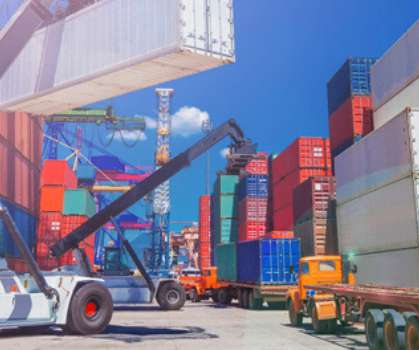Standing on the Frontlines of Logistics Change and Volatility Armed with Tech-driven Resiliency
CH Robinson Transportfolio
JUNE 16, 2021
Shippers and carriers have been in or near peak season mode for months, and we stand side-by-side with them in constantly pushing out the kind of technology and innovation needed to help them keep pace with an unprecedented rate of change and ongoing volatility. March 2007 John F. This quarter, we have 177 additional features planned.

















Let's personalize your content